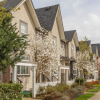Search PentictonNow
- Food & Drink
- Biz+Tech
- Travel & Lifestyle
- Arts & Culture
- News & City Info
- Cannabis
- Newsletter
- Advertise
- Auctions
- Big White Ski Resort
- Patio Guide
- Real Estate
- Contests
- Best Of the city
- Faces of Penticton
- More
- Newsletter Subscription
Array
(
[Site] => Array
(
[id] => 5
[url] => www.pentictonnow.com
[name] => PentictonNow
[created] =>
[modified] => 2025-04-14 14:58:24
[is_ecommerce] =>
[google_id] => UA-115535372-1
[timezone] => America/Vancouver
[logo] => pentictonnow.png
[logo_white] => 5de0570f-4db8-46a1-bccb-4d1cd8b0b5a6.png
[merchant_id] =>
[weather_id] =>
[facebook_api_key] => 424206837750597
[facebook_app_secret] => e0fe413957d827e72fcff22397ee8ec5
[rottentomatoes_api_key] =>
[city] => Penticton
[url_nice] =>
[background_image] => 5f20afe67fbc8.jpg
[background_start] => 2020-08-10 00:00:00
[background_end] => 2020-08-11 23:45:00
[background2_image] => 5f20afe67ff29.jpg
[background2_start] => 2017-10-15 00:00:00
[background2_end] => 2017-10-15 00:00:00
[alert] =>
[square_logo] =>
[spring] =>
[summer] =>
[fall] =>
[winter] =>
[homepage_id] => 715
[show_in_navigation] => 1
[navigation_slug] => pentictonnownew
)
)
1
















